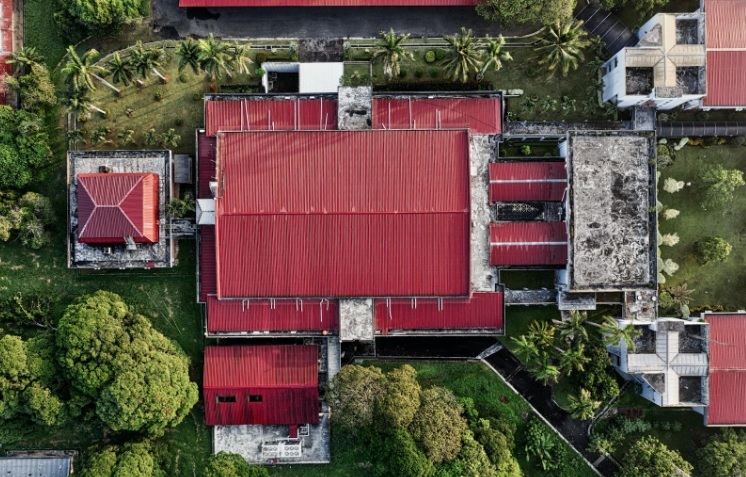Buying vs renting a home in Malaysia: Which is right for you?

- Struggling to decide between buying or renting in Malaysia? Get insights on costs, flexibility, and property value to choose the best option for you.
Deciding between buying and renting a home is a significant financial decision that depends on various factors, including financial stability, lifestyle preferences, and long-term goals. While homeownership provides stability and potential investment returns, renting offers flexibility and lower upfront costs.
In Malaysia, factors such as property prices, mortgage rates, and rental market trends significantly impact this decision. Urban areas such as Kuala Lumpur and Penang have seen rising property values, making homeownership a strategic investment for some, while others may find renting more practical.
Understanding the pros and cons of both options can help you determine the best choice for your circumstances.
Buying a home in Malaysia
Pros of buying
- Long-term Investment: Property values may appreciate over time, allowing homeowners to build equity and potentially earn profits if they sell later.
- Stability and security: Homeownership eliminates concerns about lease renewals, rental price hikes, or landlords deciding to sell. It provides peace of mind for those planning long-term residency.
- Customisation and freedom: Owners have the flexibility to renovate and personalise their living spaces to suit their needs and preferences, making them true reflections of their lifestyles.
- Government incentives: First-time homebuyers in Malaysia can benefit from schemes such as Skim Rumah Pertamaku (My First Home Scheme) and stamp duty exemptions.
Cons of buying
- High upfront costs: Purchasing a home requires a significant initial investment, including down payments (typically 10% of the property price), legal fees, and stamp duty.
- Long-term commitment: A mortgage is a long-term financial responsibility, often spanning 30 years or more. This commitment can limit financial flexibility.
- Maintenance responsibilities: Homeowners are responsible for maintenance and repairs, which can be costly over time. Unlike renting, there is no landlord to handle issues such as plumbing or electrical faults.
- Market risks: Property prices may fluctuate because of economic conditions, affecting resale value and investment potential.
Renting a home in Malaysia
Pros of renting
- Lower initial costs: Renting does not require a large down payment, making it a more accessible option for many individuals, especially young professionals.
- Flexibility: Renting allows tenants to relocate easily, making it ideal for those with changing job locations or lifestyle preferences. This is especially beneficial for expatriates or those considering career moves in different cities.
- Less maintenance responsibility: Landlords typically handle property repairs and maintenance, reducing unexpected expenses for tenants.
- Access to prime locations: Renting may provide access to high-end locations such as KL’s Mont’Kiara or Bangsar, where purchase prices may be beyond reach for many.
- Alternative investment options: Renting may allow for greater financial flexibility and diversification of investments, enabling individuals to allocate funds to different asset classes such as stocks or bonds.
Cons of renting
- Rental increases: Landlords may increase rent over time, making long-term affordability uncertain.
- Uncertainty: A landlord may decide to sell the property or not renew the lease, forcing tenants to move unexpectedly.
- Limited customisation: Renters often face restrictions on renovations, decorations, and modifications. Personalising the space is usually limited to temporary décors.
- No equity-building: Unlike homeownership, rent payments do not contribute to asset accumulation.
Key considerations before deciding
- Financial readiness: Owning a home requires a long-term financial commitment. Consider whether your income, savings, and debt levels allow you to manage monthly mortgage repayments, maintenance costs, and other homeownership expenses. A home loan approval typically depends on the debt service ratio (DSR), which assesses affordability based on income and existing debts.
- Lifestyle and career plans: If you anticipate relocating for work or other reasons, renting may be a more practical choice. However, if you plan to settle in one location for the foreseeable future, buying a home may be a worthwhile investment.
- Property market trends: Research the local property market to understand whether property prices are rising or falling. Locations with high growth potential, such as Bukit Jalil or Taman Pertama, may offer better long-term returns for buyers. Additionally, areas near upcoming infrastructure projects, such as mass rapid transit (MRT) and light rail transit (LRT) expansions, may experience increased demand and appreciation.

Conclusion
Both buying and renting have their advantages and challenges. The right choice depends on your financial situation, lifestyle, and future plans. Prospective homeowners can explore properties like Lavinia Apartment or Putra One Residence for investment potential, while renters may find options such as Vista Saujana Apartment suitable for flexible living.
Before making a decision, it is advisable to consult a financial advisor or a real estate expert. Whether you choose to buy or rent, assessing your long-term goals and financial capability will help ensure a secure and comfortable living situation. Explore available properties such as Season Garden Residence, Sky Awani Residence, Senai Garden Apartment, Tropicana Aman 1, and Intan Apartment Setiawangsa to find the perfect home for your needs.
Ultimately, whether you decide to buy or rent, understanding your financial situation and long-term objectives will guide you towards making the right housing choice.
Want to have a more personalised and easier house hunting experience? Get the EdgeProp Malaysia App now.
Never miss out
Sign up to get breaking news, unique insights, event invites and more from EdgeProp.
Latest publications
Malaysia's Most
Loved Property App
The only property app you need. More than 200,000 sale/rent listings and daily property news.
